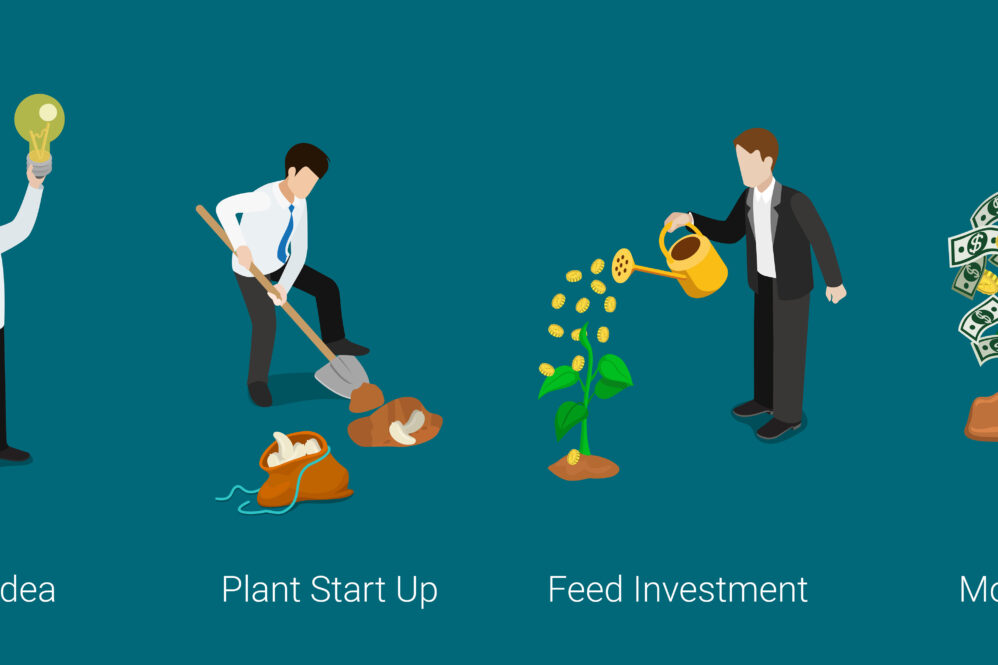Impact investing is an investment approach with a combination of having a beneficial effect on society and the environment while also generating financial returns.
When it comes to the agricultural sector in Nigeria, impact investment is crucial for addressing the difficulties of sustainable development while also generating healthy profits.
This article will explain what “impact investing” is in the context of Nigerian agriculture and how it may promote good change in the industry.
The article will also provide examples of how impact investing has already had an effect on the Nigerian economy.
Understanding Nigerian Agribusiness
Farming, processing, and distributing agricultural goods are just a few of the many tasks involved in Nigerian agriculture. The economy of Nigeria is heavily dependent on agriculture. It supports the development of rural and national regions by giving many people job opportunities. Agriculture encompasses a wide range of activities, Crop cultivation, animal husbandry, fishing, and forest maintenance are a few examples.
The agriculture industry in Nigeria has both difficulties and opportunity just like any other business,
Here are some challenges facing the Nigerian agriculture industry.
Restricted access to financing
One of the key issues with Nigeria’s agricultural industry is restricted access to financing, especially for smallholder farmers, who account for a sizable fraction of the agricultural labor. Farmers are unable to invest in contemporary technology, high-quality inputs, and better agricultural techniques due to a lack of finance, restricting productivity and earning potential. Impact investing may help to solve this issue by giving finance, technical aid, and capacity-building assistance to smallholder farmers.
Lack of infrastructure
Another barrier in Nigerian agriculture is a lack of infrastructure. Inadequate storage, transportation networks, and market connections impede the efficient flow of agricultural goods from fields to markets. This results in post-harvest losses, decreased profitability, and restricted access to national and international markets.
Impact investments in rural infrastructure development may assist close the gap by funding the building of storage facilities, enhancing transportation networks, and establishing market relations. These investments have the potential to boost production, minimize losses, and generate chances for value addition and market diversification.
Low adoption of contemporary agricultural methods and technology
A common concern in Nigerian agriculture is the low adoption of contemporary agricultural methods and technology. Many farmers still rely on traditional and subsistence farming methods, limiting productivity and profitability. By providing financial and technical support for programs such as organic farming, agroforestry, precision agriculture, and climate-smart approaches, impact investment may accelerate the adoption of sustainable agricultural practices.
These investments not only boost agricultural output but also help to ensure environmental sustainability by lowering the sector’s ecological imprint. Nigeria’s agricultural industry provides several prospects for value addition and agribusiness growth. With a big domestic market and an expanding population, demand for processed agricultural goods such as packaged food, drinks, and agricultural inputs is increasing.
Impact investors may help agribusiness businesses add value to agricultural products, stimulate innovation, and generate jobs throughout the value chain. Impact investment promotes agribusiness development, which helps to economic growth, job creation, and poverty alleviation.
Impact Areas in Nigerian Agribusiness
Impact investing in Nigerian agribusiness targets various impact areas to drive positive change and address critical challenges in the sector.
By strategically directing investments towards these areas, impact investors can contribute to sustainable development, poverty reduction, and improved livelihoods.
The key impact areas in Nigerian agribusiness include sustainable farming practices and environmental impact, smallholder farmer empowerment and poverty reduction, food security and nutrition improvement, gender equality and social inclusivity, and rural infrastructure development.
Sustainable Farming Practices and Environmental Impact
Promoting sustainable agricultural methods is a critical emphasis for impact investors in Nigerian agriculture. Organic farming, agroforestry, precision agriculture, and conservation agriculture are all examples of sustainable farming. These methods limit the need for synthetic inputs, prevent damage to soil health, preserve water resources, and reduce greenhouse gas emissions.
Impact investors give financial help, technical assistance, and training to farmers and agribusinesses in order for them to adopt and execute these sustainable practices. Impact investors contribute to environmental protection, climate change mitigation, and the long-term sustainability of agricultural systems by investing in sustainable farming.
Smallholder Farmer Empowerment and Poverty Reduction
Smallholder farmers are the foundation of Nigerian agriculture, but they confront several obstacles, including restricted access to capital, markets, and agricultural supplies. Impact investing seeks to empower smallholder farmers by providing financial services, market access, training, and capacity-building assistance.
Investments in farmer cooperatives, financial institutions, and agricultural extension services build smallholder farmers’ capabilities, allowing them to enhance production, boost income, and raise themselves out of poverty. Impact investors contribute to inclusive economic development, alleviate income inequities, and improve rural lives through empowering smallholder farmers.
Food Security and Nutrition Improvement
Addressing food security issues is an important impact area for impact investment in Nigerian agriculture. Agricultural productivity is being improved, post-harvest losses are being reduced, agricultural value chains are being strengthened, and market connections are being strengthened. Impact investors contribute to a more resilient and secure food system by financing programs that promote sustainable farming practices, efficient storage and processing facilities, and market access for smallholder farmers.
Investing in efforts that promote varied and healthy food production and distribution may also assist improve nutrition outcomes, especially for disadvantaged people. Impact investors play a critical role in ensuring that everyone has access to safe, cheap, and nutritious food.
Gender Equality and Social Inclusivity
Gender equality and social inclusion are top priorities for impact investors in Nigerian agriculture. Women are important contributors to agricultural output, but women often confront uneven access to resources, markets, and decision-making authority. Impact investing aims to address these discrepancies by funding activities that empower women farmers, promote gender equality, and give equitable opportunities for women in the agricultural industry.
Financing women-led agribusinesses, providing training and capacity-building initiatives for women farmers, and campaigning for gender-responsive legislation are all possible investments. Impact investors help to more inclusive and fair agricultural value chains and societal growth by encouraging gender equality.
Rural Infrastructure Development
Investing in rural infrastructure is crucial for the development of Nigerian agribusiness. Limited access to storage facilities, transportation networks, and market linkages hampers the efficient movement of agricultural produce from farms to markets. Impact investors play a significant role in addressing these infrastructure gaps by financing the construction of storage facilities, cold chains, rural roads, and transportation networks.
These investments improve post-harvest management, reduce losses, and enable farmers to access wider markets, resulting in increased incomes and economic opportunities in rural areas. Rural infrastructure development investments contribute to the overall growth and competitiveness of the agribusiness sector.
Investment Strategies in Nigerian Agribusiness
Impact investors in Nigerian agribusiness employ various investment strategies to maximize their impact while generating financial returns. These strategies leverage different approaches to address specific challenges and opportunities in the sector.
Some common investment strategies include
Direct Investments in Agribusiness Enterprises
Direct investments involve providing capital and support directly to agribusiness enterprises. Impact investors identify promising businesses that align with their impact objectives and provide funding to support their growth and development.
This may include investments in agricultural production companies, food processing and manufacturing firms, agricultural technology startups, and supply chain businesses. Direct investments offer opportunities for impact investors to actively engage with the invested enterprises, provide strategic guidance, and monitor the social and environmental performance of the businesses.
By investing directly in agribusiness enterprises, impact investors can drive positive change at the company level while earning financial returns.
Investments in Agricultural Funds and Venture Capital

Investing in agricultural funds and venture capital vehicles is another strategy employed by impact investors in Nigerian agribusiness. Agricultural funds pool together capital from multiple investors to provide financing to a portfolio of agribusinesses.
These funds may focus on specific sectors, such as organic farming, smallholder farmer financing, or value chain development. Venture capital investments, on the other hand, target early-stage and high-growth potential agricultural startups and innovative enterprises. These investments support entrepreneurship, innovation, and the scaling up of impactful business models.
By investing in funds and venture capital, impact investors diversify their portfolios and gain exposure to a range of agribusiness opportunities while benefiting from professional fund management.
Blended Finance Approaches
Blended finance approaches combine public and private capital to address market failures and attract investment to challenging sectors. In Nigerian agribusiness, blended finance approaches are used to de-risk investments, mobilize additional capital, and leverage public resources for impact. These approaches involve combining grants, concessional loans, or guarantees from development finance institutions or governments with impact investor capital.
Blended finance can help address challenges such as limited access to finance for smallholder farmers, high upfront investment costs for rural infrastructure, and market uncertainties. By blending different sources of capital, impact investors can achieve both impact and financial objectives while catalyzing additional investment in the sector.
Impact Bonds and Pay-for-Success Models
Impact bonds and pay-for-success models are innovative financing mechanisms that align financial returns with specific social or environmental outcomes. These models involve outcome-based contracts where investors provide upfront capital for projects or initiatives, and the returns are tied to the achievement of predefined impact metrics.
In the context of Nigerian agribusiness, impact bonds could be structured to finance projects that focus on smallholder farmer training and capacity-building, sustainable farming practices adoption, or market access for rural communities. By linking financial returns to impact outcomes, these models incentivize the achievement of desired results and ensure accountability for impact investors.
Public-Private Partnerships
PPPs are collaborative agreements between government bodies and private sector investors to pursue common development objectives. PPPs may be used to generate large-scale investments in rural infrastructure, market development, and agricultural value chain projects in Nigerian agribusiness.
PPPs may generate huge investment possibilities and provide a suitable climate for sustainable agricultural growth by merging the resources, knowledge, and networks of both public and private parties. PPPs allow impact investors to contribute their expertise, cash, and impact focus to guarantee that initiatives generate significant results for the industry and the people affected.
Conclusion
Impact investment in Nigerian agriculture provides a once-in-a-lifetime chance to have a good impact while also making a financial return. Impact investors address development concerns and generate positive change in the industry by investing in sustainable and socially inclusive activities.
This technique encourages sustainable farming, farmer empowerment, and economic progress. Impact investment has the ability to build a more sustainable and profitable future for Nigerian agriculture, benefitting both people and the earth, through cooperation and creative solutions.












